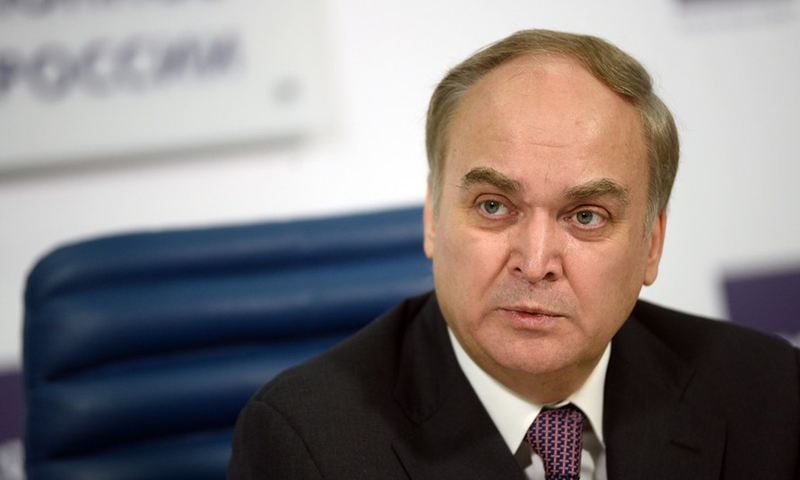Washington, D.C., August 02, 2024, The Europe Today: Anatoly Antonov, Russia’s Ambassador to the United States, has sharply criticized U.S. nuclear policy, describing it as “deeply hostile” while accusing Washington of attempting to “lecture” Russia and China. His remarks followed a speech by U.S. Acting Assistant Secretary of Defense for Space Policy, Vipin Narang, who warned that the world has entered a “new nuclear age” and emphasized the need for the U.S. to prepare for an environment where nuclear arsenal constraints could vanish.
In his address at the Center for Strategic and International Studies on Thursday, Narang highlighted the necessity for a “more competitive approach” to nuclear policy. He attributed this shift to the actions of “revisionist nuclear challengers” such as China, and the alleged advancements in Russian and North Korean nuclear capabilities. Narang specifically referenced concerns over Russian anti-satellite weapons as a catalyst for this strategic recalibration.
Ambassador Antonov criticized Narang’s speech as an example of “innuendos about Russia’s allegedly irresponsible behavior in the nuclear sphere,” arguing that such rhetoric is counterproductive to enhancing strategic security. Antonov contended that the U.S. is attempting to dictate terms to Russia and China, suggesting that this approach could lead to a new era of nuclear competition where the U.S. may struggle to manage its own nuclear arsenal effectively.
Additionally, Antonov condemned U.S. support for Ukraine amid its ongoing conflict with Russia, labeling the continued provision of advanced weaponry, including fighter jets capable of carrying nuclear arms, as a “deeply hostile” action. He warned that efforts to inflict a “strategic defeat” on Russia would undermine any potential for cooperation between Moscow and Washington.
The diplomat further criticized Washington’s withdrawal from key arms control agreements under the Trump administration, including the Intermediate-Range Nuclear Forces (INF) Treaty and the Open Skies Treaty. Although the Biden administration has extended the Strategic Arms Reduction Treaty (New START) through 2026, Russia suspended its participation last year, citing the U.S.’s role in the Ukraine conflict as a contributing factor.
Antonov emphasized that Russia will continue to prioritize its national interests and reiterated that meaningful dialogue on arms control cannot be achieved while the U.S. pursues policies that Russia perceives as detrimental to its strategic position.


